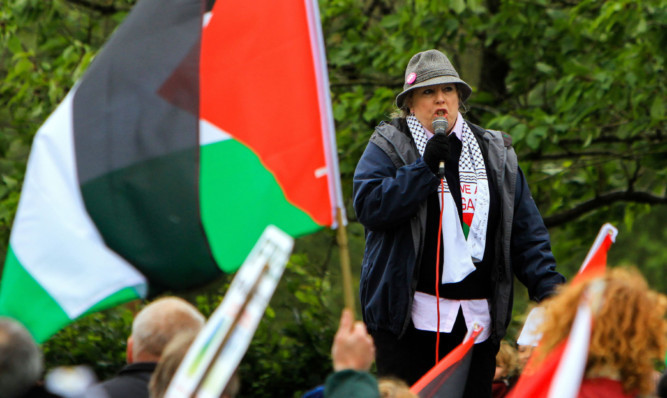Proposals to stop extremist speakers at university campuses have been branded “alarming” by student groups.
Part of the wide-ranging Counter-Terrorism and Security Bill could see all speakers at universities forced to submit their talks and visual material such as powerpoint presentations 14 days in advance so they can be vetted by officials.
Some groups have likened the proposals to the policies of the IngSoc government in George Orwell’s novel Nineteen Eighty-Four.
A spokesman for Dundee University Students’ Association said: “We were not aware of this; DUSA, like many other students’ associations, finds this deeply alarming.
“This kind of criticism shuts down the academic discourse, and universities ought to be a place where divisive or dangerous ideas can be discussed and criticised in a free space.
“Our students and outside speakers should be able to hear from many different ideologies.
“It isn’t necessary to protect them, because in my four years at DUSA I’ve never heard of anyone being radicalised as this legislation describes.”
Proposals could see speakers like journalist and Respect Party activist Yvonne Ridley, who spoke at Dundee University last year, submitting their notes and possibly being censored or silenced.
It is not clear in the bill whether material will be vetted by a British, Scottish or university group.
Dundee City Council education convener, Councillor Laurie Bidwell, said: “I trust that our schools, colleges and universities in Dundee are not going to be subject to these new duties, which I think would be unnecessarily onerous and more importantly threaten to undermine the right to freedom of speech.
“In seeking to protect ourselves, our values and way of life from terrorism, it is ironic that we should be introducing measures that will curb our hard-won freedoms.”
A Dundee University spokesman said: “The university has a commitment to provide a safe place to work and study as well as a duty to, and fundamental belief in, academic freedom and freedoms of speech.
“There is a need for greater clarity around some of the new powers this Bill would give to the Home Secretary and a need for further consideration of the statutory guidance that universities would be required to follow.
“This has to achieve the right balance of responsibility and proportionality and be workable for institutions, their staff and students.”
Rev David Robertson, who becomes Free Church of Scotland Moderator in May, branded the plans “a dangerous and repressive attack” on freedom of speech and civil liberties.
“To require all visiting speakers to submit their talks a fortnight in advance so they can be vetted against political correctness is Big Brother Orwellian stuff,” he said.
“There is no chance I will be submitting any sermon or talk to any government or university official for prior approval.”
A Home Office spokesperson said: “We must ensure that poisonous, divisive ideologies are not allowed to spread, including through our universities.
“There is no contradiction between promoting freedom of speech and safeguarding the interests and wellbeing of students, staff and the wider community.”
